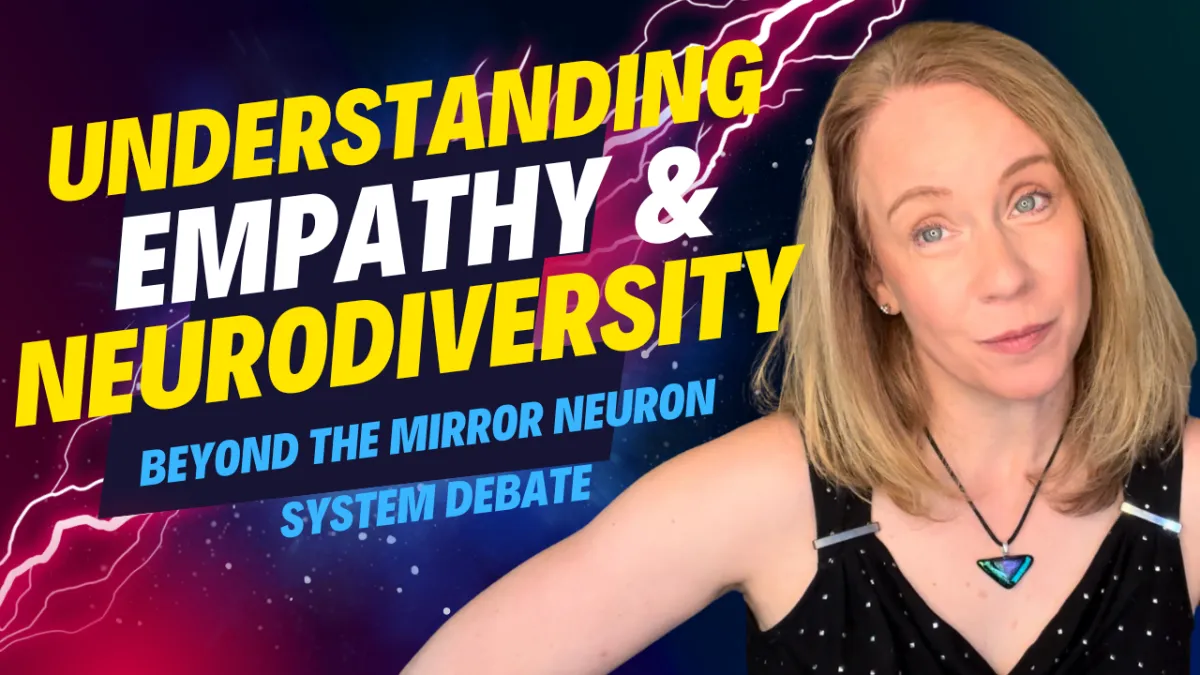
How a Meta-Analysis Ended the "Broken Mirror Neuron Debate" on Autism and Empathy
The debate around how the mirror neuron system affects empathy in autistic and non-autistic individuals has been a point of contention in neuroscience. The discussion often centers on whether differences in the mirror neuron system contribute to the different ways empathy is experienced by autistic and non-autistic individuals. A recent meta-analysis by researchers Chan and Han provides clarity, effectively ending the "Broken Mirror Neuron Debate."
The Meta-Analysis by Chan and Han
In 2020, researchers Chan and Han published a meta-analysis that brought together findings from numerous studies on the relationship between autism and the mirror neuron system. A meta-analysis is a comprehensive review that aggregates data from multiple studies, using statistical methods to identify patterns or draw conclusions that may not be apparent in individual studies.
The meta-analysis by Chan and Han analyzed studies with varying methodologies, subjects of different ages, and various stimuli used during experiments. They found that these factors contributed to inconsistent results in earlier studies. By standardizing the analysis, they concluded that the mirror neuron system does indeed function differently in autistic individuals compared to non-autistic individuals, but it is not "broken."
Different Does Not Mean 'Impaired' or 'Broken'
Chan and Han's meta-analysis described the mirror neuron system in autistic individuals as "impaired." This language reflects a medical model that often categorizes neurological differences as deficits, viewing minority neurological variations as abnormalities rather than natural variations with their own unique strengths. This perspective can overlook the evolutionary advantages and distinct contributions that diverse neurological profiles bring to human experience.
Using terms like "impaired" can be stigmatizing. By adopting language that respects this perspective, we can foster acceptance and appreciation of all forms of neurodiversity, emphasizing support rather than correction. Aligning thinking with natural evolutionary variations rather than focusing on "disorders" and "impairments" will also support researchers in asking better questions so they can find better answers.
The Role of Mirror Neurons
Mirror neurons are a type of brain cell that respond when we perform an action and when we observe someone else performing the same action. This mirroring mechanism is essential for understanding social interactions and empathy. Vittorio Gallese introduced the concept of embodied simulation, which suggests that mirror neurons allow individuals to internally simulate the actions and emotions of others, providing a basis for empathy.
Implications of the Meta-Analysis
The findings from Chan and Han’s meta-analysis show that differences in the mirror neuron system contribute to the diverse expressions of empathy among autistic and non-autistic individuals. In autistic individuals, these differences manifest as what is often called emotion-sharing empathy, where they deeply resonate with the emotions of others. In contrast, non-autistic individuals typically experience what Anne MacMillan terms body empathy, involving the physical mirroring of actions and emotions.
Autism is a spectrum, and the functioning of the mirror neuron system can vary significantly among autistic individuals. Some individuals, autistic or not, experience higher levels of embodied simulation, in which their mirror neuron systems engage more actively in simulating others' actions and emotions. This variation within the autism spectrum and among the wider population means that empathy experiences can differ greatly. Acknowledging and understanding this variability is essential for recognizing the unique ways in which autistics and non-autistics connect with and interpret the world around them.
Moving Forward
The resolution of the broken mirror neuron debate through Chan and Han's meta-analysis provides a clear acknowledgment that autistic and non-autistic mirror neuron systems function differently. This understanding can help inform more effective support and interventions for neurodiverse individuals and their non-autistic neurodivergent family members (including attention neurodivergents and high body empathetics) who may also have mirror neuron system differences in comparison to the general neurotypical population.
In conclusion, Chan and Han's meta-analysis effectively resolves the "broken mirror neuron debate," but the reliance on medical language that emphasizes impairments instead of differences may limit the scope of future research. This approach risks framing neurological differences as deficits rather than as natural variations within human evolution. By recognizing the diverse ways empathy is experienced, we can better appreciate the strengths and challenges faced by all individuals, autistic or not. This understanding fosters a more inclusive society that offers more comprehensive support and insights for all neurodivergents and all members of neurodiverse family systems.
Support for Clients
Neurodiverse Credentialing and Practice Support for Psychologists, Therapists, Social Workers, Clergy, and Domestic Violence workers is available here.
Autistic and non-autistic members of neurodiverse family systems can reach out for support here.
Resources for Further Exploration
Read Vittorio Gallesse's 2007 article entitled "Before and Below 'Theory of Mind': Embodied Simulation and the Neural Correlates of Social Cognition" published by The Royal Society, 362(1480), doi:10.1098/rstb.2006.2002.
Read Chan and Han's 2020 meta-analysis entitled "Differential Mirror Neuron System (MNS) Activation During Action Observation with and without Social-Emotional Components in Autism: A Meta-Analysis of Neuroimaging Studies" published in Molecular Autism, (11)72, doi:10.1186/s13229-020-00374-x.
Read Acharya and Shukla's 2012 paper entitled "Mirror Neurons: Enigma of the Metaphysical Modular Brain" published by the Journal of Natural Science and Biological Medicine, 3(2), pp. 118-124, doi:10.4103/0976-9668.101878.
Read Anne MacMillan's 2025 book entitled Neurodiverse Family Systems: Theory and Practice, available for pre-order.
